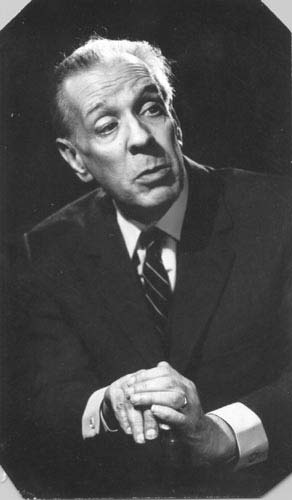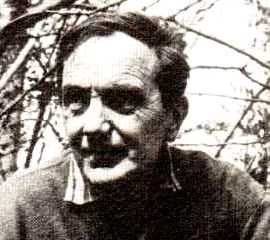Related Research Articles

Jorge Francisco Isidoro Luis Borges Acevedo was an Argentine short-story writer, essayist, poet and translator regarded as a key figure in Spanish-language and international literature. His best-known works, Ficciones (transl. Fictions) and El Aleph, published in the 1940s, are collections of short stories exploring motifs such as dreams, labyrinths, chance, infinity, archives, mirrors, fictional writers and mythology. Borges's works have contributed to philosophical literature and the fantasy genre, and have had a major influence on the magic realist movement in 20th century Latin American literature.
"Tlön, Uqbar, Orbis Tertius" is a short story by the 20th-century Argentinian writer Jorge Luis Borges. The story was first published in the Argentinian journal Sur, May 1940. The "postscript" dated 1947 is intended to be anachronistic, set seven years in the future. The first English-language translation of the story was published in 1961.

Spanglish is any language variety that results from conversationally combining Spanish and English. The term is mostly used in the United States and refers to a blend of the words and grammar of the two languages. More narrowly, Spanglish can specifically mean a variety of Spanish with heavy use of English loanwords.

Julio Florencio Cortázar was an Argentine, naturalised French novelist, short story writer, essayist, and translator. Known as one of the founders of the Latin American Boom, Cortázar influenced an entire generation of Spanish-speaking readers and writers in America and Europe.

Labyrinths is a collection of short stories and essays by Argentine writer and poet Jorge Luis Borges. It was translated into English, published soon after Borges won the International Publishers' Prize with Samuel Beckett.

This is a bibliography of works by Argentine short-story writer, essayist, poet, and translator Jorge Luis Borges (1899–1986).
"Funes the Memorious" is a fantasy short story by Argentine writer Jorge Luis Borges (1899–1986). First published in La Nación of June 1942, it appeared in the 1944 anthology Ficciones, part two (Artifices). The first English translation appeared in 1954 in Avon Modern Writing No. 2.

Juan Rodolfo Wilcock was an Argentine-Italian writer, poet, critic and translator. He was the son of Charles Leonard Wilcock and Ida Romegialli. He adopted a son, Livio Bacchi Wilcock, who translated Jorge Luis Borges' work into Italian.
Latin American poetry is the poetry written by Latin American authors. Latin American poetry is often written in Spanish, but is also composed in Portuguese, Mapuche, Nahuatl, Quechua, Mazatec, Zapotec, Ladino, English, and Spanglish. The unification of Indigenous and imperial cultures produced a unique and extraordinary body of literature in this region. Later with the introduction of African slaves to the new world, African traditions greatly influenced Latin American poetry. Many great works of poetry were written in the colonial and pre-colonial time periods, but it was in the 1960s that the world began to notice the poetry of Latin America. Through the modernismo movement, and the international success of Latin American authors, poetry from this region became increasingly influential.
Latino poetry is a branch of American poetry written by poets born or living in the United States who are of Latin American origin or descent and whose roots are tied to the Americas and their languages, cultures, and geography.
Latin American literature consists of the oral and written literature of Latin America in several languages, particularly in Spanish, Portuguese, and the indigenous languages of the Americas. It rose to particular prominence globally during the second half of the 20th century, largely due to the international success of the style known as magical realism. As such, the region's literature is often associated solely with this style, with the 20th century literary movement known as Latin American Boom, and with its most famous exponent, Gabriel García Márquez. Latin American literature has a rich and complex tradition of literary production that dates back many centuries.

Ilan Stavans is an American writer and academic. He writes and speaks on American, Hispanic, and Jewish cultures. He is the author of Quixote (2015) and a contributor to the Norton Anthology of Latino Literature (2010). He was the host of the syndicated PBS show Conversations with Ilan Stavans, which ran from 2001 to 2006.
Giannina Braschi is a Puerto Rican poet, novelist, dramatist, and scholar. Her notable works include Empire of Dreams (1988), Yo-Yo Boing! (1998) and United States of Banana (2011).

Harold Augenbraum is an American writer, editor, and translator. He is the former Executive Director of the National Book Foundation, and former member of the Board of Trustees of the Asian American Writers Workshop, and former vice chair of the New York Council for the Humanities. Before taking up his position at the National Book Foundation in November 2004, for fifteen years Augenbraum was Director of The Mercantile Library of New York, where he established the Center for World Literature, the New York Festival of Mystery, the Clifton Fadiman Medal, and the Proust Society of America. He has been awarded eight grants from the National Endowment for the Humanities, received a Raven Award from the Mystery Writers of America for distinguished service to the mystery field, and coordinated the national celebration of the John Steinbeck Centennial. He is on the advisory board of the literary magazine The Common, based at Amherst College. In 2016, he was awarded an honorary doctorate from Concordia College in Moorhead, Minnesota. He is co-founder, with Alice Kaplan, of the Yale Translation Initiative at Yale University, where he is Associate Director, and from 2017 to 2019 was Acting Editor of The Yale Review.

American literature in Spanish in the United States dates back as 1610 when the Spanish explorer Gaspar Pérez de Villagrá published his epic poem Historia de Nuevo México. He was an early chronicler of the conquest of the Americas and a forerunner of Spanish-language literature in the United States given his focus on the American landscape and the customs of the people. However, it was not until the late 20th century that Spanish language literature written by Americans was regularly published in the United States.

Yo-Yo Boing! (1998) is a postmodern novel in English, Spanish, and Spanglish by Puerto Rican author Giannina Braschi. The cross-genre work is a structural hybrid of poetry, political philosophy, musical, manifesto, treatise, memoir, and drama. The work addresses tensions between Anglo-American and Hispanic-American cultures in the United States.
Jorge Guillermo Borges Haslam was an Argentine lawyer, teacher, writer, philosopher and translator. He was also an anarchist and a follower of Herbert Spencer's philosophy of philosophical anarchism. He was Jorge Luis Borges's father.
Latino literature is literature written by people of Latin American ancestry, often but not always in English, most notably by Mexican Americans, Puerto Ricans, Cuban Americans, and Dominican Americans, many of whom were born in the United States. The origin of the term "Latino literature" dates back to the 1960s, during the Chicano Movement, which was a social and political movement by Mexican Americans seeking equal rights and representation. At the time, the term "Chicano literature" was used to describe the work of Mexican-American writers. As the movement expanded, the term "Latino" came into use to encompass writers of various Latin American backgrounds, including Mexican, Puerto Rican, Cuban, and others.
Empire of Dreams is a postmodern poetry epic by Puerto Rican author Giannina Braschi, who is considered "one of the most revolutionary voices in Latin American literature today".

Tal Nitzán is an Israeli poet, writer, translator and editor.
References
- ↑ , publication information and text in English at Northwestern University.
- ↑ , Amherst philosophy lecturer John Perry discusses the differences between the two possible interpretations in depth. Perry, John. “ ‘Borges and I’ and ‘I’.” The Amherst Lecture in Philosophy 2 (2007): 1–16. <http://www.amherstlecture.org/perry2007/>.
- ↑ "Borges and I: Comparing English Translations of "Borges y yo"". CJLC. 2019-11-08. Retrieved 2023-03-04.
- ↑ "Borges and I, Borges Y Yo". Anagrammatically Correct. 2008-01-31. Retrieved 2023-03-04.
- 1 2 Hurley, Andrew (February 1, 2019). "What I Lost When I Translated Jorge Luis Borges". Inverse Journal. Retrieved March 4, 2023.